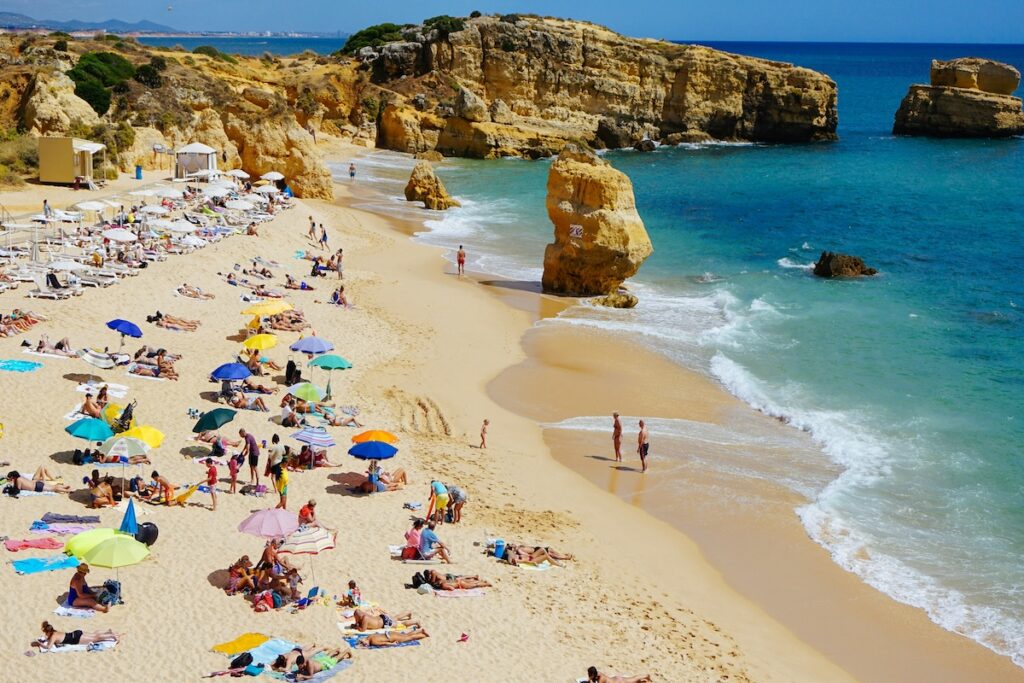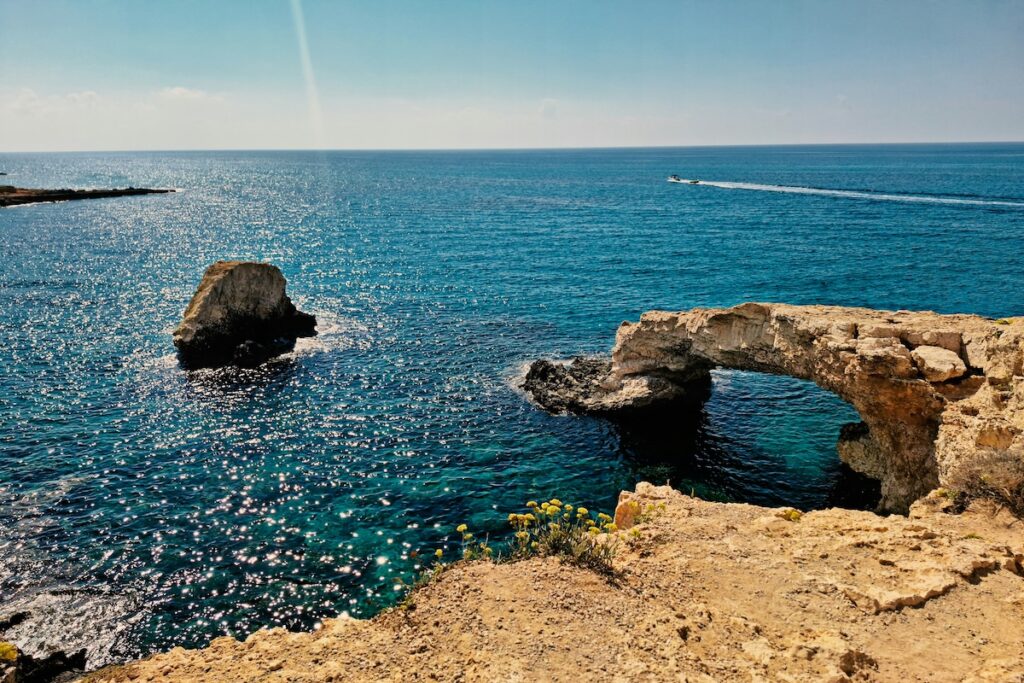Retiring in Portugal: A Guide for US Expats
October 9, 2025 | Featured, Retirement | 9 minute read
Expat Tax Blog. Tax Tips for US Americans abroad.
Updated November 4, 2025
 All blogs are verified by Enrolled Agents and CPAs
All blogs are verified by Enrolled Agents and CPAs
Updated November 4, 2025

With its sunny climate, stunning coastlines, and laid-back lifestyle, Portugal has become one of Europe’s top destinations for American retirees. From the charm of Lisbon and Porto to the golden beaches of the Algarve and the vineyards of the Douro Valley, it offers an appealing mix of culture, affordability, and comfort.
As of 2024, an estimated 14,000 Americans call Portugal home, drawn by its low cost of living, quality healthcare, and welcoming visa options.
In this guide, we’ll cover everything US expats need to know before retiring in Portugal, from visa choices and healthcare to housing, taxes, and life abroad.
Reusable Callout-Box
*For design changes please notify Dev Team.
*For bullet points please wrap text accordingly: (ul) *placeholderText* (ul)
One bulletpoint is defined by `(li)` > (ul) (li)bulletpoint1 (li)bulletpoint2 (ul)
Quick Snapshot: Retiring in Portugal (2025)
(ul)
(li)Population: 10.4 million (as of 2024)
(li)American Community: – 14,000 US expats call Portugal home
(li)Top Hub: Lisbon Metropolitan Area – 6,500 Americans (46%)
(li)Capital: Lisbon
(li)Official Language: Portuguese (English widely spoken in major cities)
(li)Currency: Euro (EUR)
(li)Totalization Agreement with the US: Yes
(li)Tax Treaty with the US: Yes
(li)Visa Options: D7 Retirement Visa (for passive income) or Golden Visa (via approved investment funds)
(ul)
How to Retire in Portugal
For Americans dreaming of an affordable, sunny, and stress-free retirement in Europe, Portugal makes it refreshingly straightforward to settle down. Before you start packing, it’s worth thinking about which visa best fits your plans and lifestyle.
If you have a steady income from Social Security, pensions, or investments, the D7 Retirement Visa is the most common path. Those looking to make a larger investment in Portugal, such as through approved funds or business ventures, may explore the Golden Visa program, though property purchases are no longer part of that route.
Beyond the paperwork, consider what kind of life you want to build: a quiet coastal retreat, a city apartment near culture and cafés, or a countryside home surrounded by vineyards. Clarifying these details early makes the visa process and your move much smoother.
Visa Options in Portugal for US Retirees
Portugal offers two main pathways for Americans looking to retire long-term: the D7 Retirement Visa and the Golden Visa. Both provide a route to residency and, eventually, citizenship, but they differ in focus: the D7 is income-based, while the Golden Visa centers on investment.
D7 Visa (Passive Income or Retirement Visa)
The D7 Visa is the most popular choice for retirees with a stable income from Social Security, pensions, or investments. Applicants must show proof of regular passive income, savings, accommodation in Portugal, and health coverage. It’s ideal for those planning to live in Portugal full-time and integrate into local life. After five years, holders can apply for permanent residency or citizenship.
Golden Visa
The Golden Visa, officially known as Portugal’s Autorização de Residência para Atividade de Investimento or Residence Permit for Investment Activity, is ideal for those seeking a flexible path to residency through investment. The program was not abolished, but major reforms in October 2023 ended real estate purchases as a qualifying option.
Today, investors can obtain residency by contributing to approved investment funds, cultural or scientific projects, or business ventures that create jobs. It offers flexibility for both those who prefer to invest without relocating immediately and those who wish to live in Portugal full-time. The visa requires only seven days of physical presence per year and, like the D7, can lead to permanent residency or citizenship after five years.
Costs and Processing Times
Portugal’s visa process is fairly straightforward, but planning ahead is key.
D7 Visa: Processing typically takes 3–5 months. Applicants must show a minimum passive income of around €820 per month (the Portuguese minimum wage), plus 50% for a spouse and 30% per dependent child, along with proof of accommodation, savings, and health insurance.
Golden Visa: Expect a longer timeline of 6–9 months due to investment verification and background checks. The minimum investment varies depending on the investment route, starting at €250,000 for cultural or heritage restoration initiatives, €350,000 for research and development projects, and €500,000 for approved investment funds.
Portuguese Tax System
Like many countries, Portugal determines tax residency based on time spent in the country or ties to it. The standard rule is 183 days in Portugal during a calendar year, or maintaining a habitual residence there.
Portugal taxes residents on their worldwide income, while non-residents pay tax only on Portugal-sourced income. For retirees, this typically includes pensions, investments, or US Social Security received while living in Portugal.
The government applies progressive income tax rates ranging from roughly 14.5% to 48%, depending on income level. Certain types of income, such as capital gains or dividends, may be taxed at flat rates.
The Portuguese tax year runs from January 1 to December 31, with returns generally filed by June 30 of the following year.
Reusable Callout-Box
*For design changes please notify Dev Team.
*For bullet points please wrap text accordingly: (ul) *placeholderText* (ul)
One bulletpoint is defined by `(li)` > (ul) (li)bulletpoint1 (li)bulletpoint2 (ul)
Tax Update: Portugal’s NHR Tax Regime
The popular Non-Habitual Resident program, which offered a 10% flat tax on foreign pensions, closed to new applicants in 2024. A new incentive now targets researchers and skilled professionals, meaning retirees no longer qualify for reduced tax rates.US Taxes for Retirees Living in Portugal
Even after retiring abroad, US citizens and Green Card holders must continue filing annual US tax returns, no matter where they live. Living in Portugal doesn’t exempt you from US taxes, but it affects how your income is taxed.
Most retirees rely on the Foreign Tax Credit (FTC) to offset taxes paid to Portugal, since it covers pension, Social Security, and other passive income. For those who still have limited earned or part-time income, the Foreign Earned Income Exclusion (FEIE), which allows you to exclude $130,000 in 2025, may apply instead.
The US–Portugal tax treaty helps coordinate these rules so you’re not taxed twice. In short, you’ll still file with the IRS each year, but with the right credits or exclusions, most retirees don’t end up paying tax twice.
Don’t Forget About State Taxes
Some “sticky states”, like California, New York, and Virginia, may still consider you a resident for tax purposes if you keep ties there. If you’re planning a permanent move abroad, it’s worth cutting those ties or establishing residency in a tax-free state before you go.
For a deeper look at how US expat taxes work in retirement, read our full Retiring Abroad: A Tax Guide for US Expats.
Reusable Callout-Box
*For design changes please notify Dev Team.
*For bullet points please wrap text accordingly: (ul) *placeholderText* (ul)
One bulletpoint is defined by `(li)` > (ul) (li)bulletpoint1 (li)bulletpoint2 (ul)
Let MyExpatPlanning Help
Planning your next chapter abroad? Let MyExpatPlanning guide you so your dream of retiring overseas doesn’t create tax headaches. From unlocking expat tax benefits to staying compliant and correctly reporting foreign accounts, we’ll help you build a retirement strategy that fits your lifestyle and protects your savings. Smart planning today means fewer surprises and more money in your pocket tomorrow.Additional Reporting: FBAR and FATCA
It’s common for retirees abroad to keep money in foreign bank or investment accounts for everyday spending, savings, or to receive income like pensions, Social Security deposits, or dividends. If the combined balance of your foreign accounts exceeds $10,000 at any point in the year, you must file an FBAR (Foreign Bank Account Report).
Retirees living in Portugal may also need to file Form 8938, the Foreign Account Tax Compliance Act (FATCA), if their foreign financial assets exceed $200,000 at year-end or $300,000 at any time during the year.
Reusable Callout-Box
*For design changes please notify Dev Team.
*For bullet points please wrap text accordingly: (ul) *placeholderText* (ul)
One bulletpoint is defined by `(li)` > (ul) (li)bulletpoint1 (li)bulletpoint2 (ul)
MyExpatTaxes Makes FBAR & FATCA Simple
MyExpatTaxes automatically includes FBAR and FATCA reporting in our Full Base Plan filing package, no extra forms or fees.Social Security Benefits Abroad
The good news is you can still collect US Social Security benefits while living in Portugal. The Social Security Administration pays benefits to retirees in over 150 countries, including Portugal. Payments can usually be deposited directly into a local Portuguese bank account, making it easy to receive your benefits abroad.
Your Social Security benefit amount doesn’t change just because you live overseas. However, benefits may still be taxable in the US depending on your total income level.
Portugal also may tax your Social Security income if you are considered a Portuguese tax resident. Fortunately, the US–Portugal tax treaty helps coordinate taxing rights and prevents the same income from being taxed twice.
Reusable Callout-Box
*For design changes please notify Dev Team.
*For bullet points please wrap text accordingly: (ul) *placeholderText* (ul)
One bulletpoint is defined by `(li)` > (ul) (li)bulletpoint1 (li)bulletpoint2 (ul)
Foreign Spouse
Due to the Totalization Agreement between the US and Portugal, If you’re married to a non-US citizen, your foreign spouse may still be eligible for US Social Security spousal or survivor benefits.Healthcare in Portugal for US Expats
Portugal’s public healthcare system, the Serviço Nacional de Saúde (SNS), offers affordable, high-quality care to residents. Both D7 and Golden Visa holders gain access only after their residency is validated, so coverage doesn’t start immediately.
Proof of private health insurance is required when applying for either visa. This covers the gap before you can register with the SNS (typically within one to two months of arrival).
Many retirees choose a global health insurance plan to ensure full coverage while abroad, though private insurance in Portugal is generally affordable and easy to arrange until public healthcare access begins.
Note: Medicare doesn’t cover healthcare abroad, so continuous private insurance is essential until you’re fully registered in Portugal.
Cost of Living in Portugal
While Portugal remains one of the most affordable destinations in Western Europe, the recent influx of foreign residents has gradually increased housing and day-to-day prices in popular areas. Still, Portugal offers excellent value, a couple can live comfortably on $2,500 to $3,000 per month outside major cities, and a bit more in Lisbon, Porto, or the Algarve.
Housing is the largest expense, with rentals starting around $450 in smaller towns and closer to $1,000 in city centers. Groceries, dining out, and healthcare all cost significantly less than in the US, and many retirees find they can enjoy a high quality of life for far less than back home.
Benefits of Retiring in Portugal
Portugal consistently ranks among the best places in the world to retire — and it’s easy to see why. The country offers a rare balance of comfort, beauty, and affordability that makes day-to-day life both relaxed and rewarding.
Some of the biggest draws include:
- Mild, sunny weather that makes outdoor living possible year-round.
- Diverse scenery — from golden beaches and rolling vineyards to mountain villages and coastal cliffs.
- Charming towns and cities filled with culture, history, and friendly locals.
- Fresh, flavorful cuisine, with local favorites like grilled seafood, piri-piri chicken, and the beloved pastel de nata.
- Renowned wines, including Port, Madeira, and excellent regional vintages.
- A rich cultural heritage, celebrated through fado music, colorful festivals, and Portugal’s iconic azulejo tiles.
- Excellent infrastructure and modern healthcare, paired with a cost of living far below most Western European countries.
Whether you dream of lazy afternoons by the sea or quiet days in the countryside, Portugal makes it easy to enjoy a fulfilling, affordable retirement abroad.
Best Places to Retire in Portugal
The Algarve
Portugal’s southern coast is famous for sunshine, beaches, and golf. With established expat communities and great healthcare, it’s the top pick for many retirees seeking sea views and a relaxed pace of life.
Lisbon
The capital offers vibrant city living, world-class dining, and easy access to the rest of Europe. It’s ideal for retirees who want culture, convenience, and good public transport.
Porto
Portugal’s second-largest city blends riverside charm with affordability. Known for Port wine and friendly locals, Porto is great for retirees who enjoy walkable neighborhoods and a mild climate.
Silver Coast
Stretching between Lisbon and Porto, the Silver Coast offers beautiful beaches, traditional towns, and a slower lifestyle — often at lower costs than the Algarve.
Madeira
This island paradise has a mild climate year-round, stunning scenery, and a peaceful atmosphere — perfect for retirees who value nature and tranquility.
The Azores
A remote island group in the Atlantic known for green hills, volcanic lakes, and friendly communities. It’s ideal for retirees who want to live surrounded by natural beauty.
Enjoy Your Retirement in Portugal
Portugal offers retirees an exceptional quality of life, from affordable living and excellent healthcare to a welcoming culture. With one of the largest US expat communities in Europe, it’s a country where settling in feels easy and rewarding.
MyExpatTaxes helps you make the most of your new chapter in Portugal by ensuring your US tax filings are simple, accurate, and fully compliant. Our team helps you unlock every benefit available, so you can focus on enjoying your retirement abroad.
With MyExpatTaxes, many expats discover they owe little or even no US tax. Sign up today and keep more of your money in retirement.
Frequently Asked Questions
Content of the Accordion Panel
Yes. Americans can retire in Portugal through the D7 Visa (for passive income) or the Golden Visa (through investment). Both offer a path to long-term residency and, after five years, eligibility for citizenship.
Content of the Accordion Panel
Popular areas include the Algarve for its beaches and sunshine, Lisbon for city life and culture, Porto for affordability and wine country charm, and the Silver Coast for peaceful seaside living. Each region offers a unique lifestyle and cost of living.
Content of the Accordion Panel
Most retired couples live comfortably on $2,500 to $3,000 per month, though this varies by region. Smaller towns and inland areas are cheaper, while Lisbon, Porto, and the Algarve tend to be more expensive.
Content of the Accordion Panel
Yes. All US citizens and Green Card holders must continue filing annual US tax returns, no matter where they live. The Foreign Tax Credit (FTC) and the US–Portugal tax treaty can help prevent double taxation on retirement income.
Content of the Accordion Panel
Yes. The Social Security Administration pays benefits to retirees in over 150 countries, including Portugal, and payments can be deposited directly into a local Portuguese bank account.
Content of the Accordion Panel
Yes. If the total balance of your foreign accounts, including any in Portugal exceeds $10,000 at any point during the year, you must file an FBAR (FinCEN Form 114). You may also need to report other assets under FATCA (Form 8938) if their value passes IRS thresholds.
See Why US Expats From Around the World Love Us!
Easily file regardless of how complex your US expat tax situation is.
Been here before? Sign in!


Written by Nathalie Goldstein, EA
Nathalie Goldstein, EA is a leading expert on US taxes for Americans living abroad and CEO and Co-Founder of MyExpatTaxes. She contributes to Forbes and has been featured in Forbes, CNBC and Yahoo Finance discussing US expat tax.
October 9, 2025 | Featured, Retirement | 9 minute read






